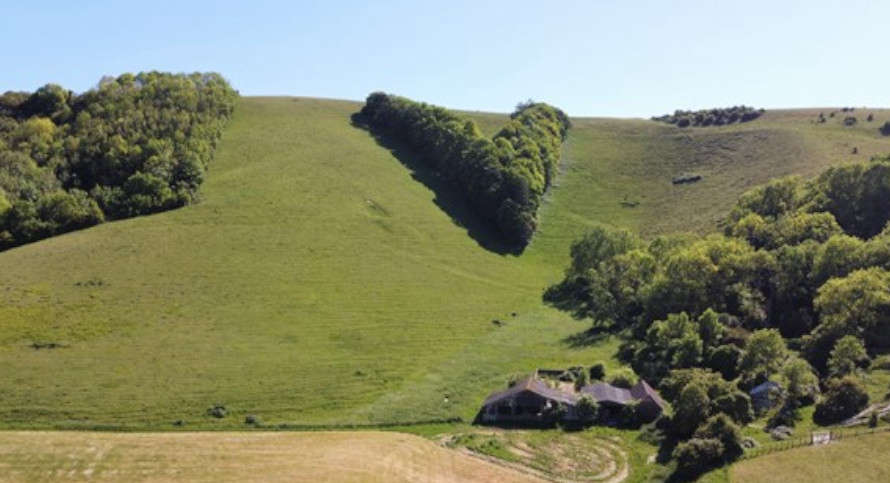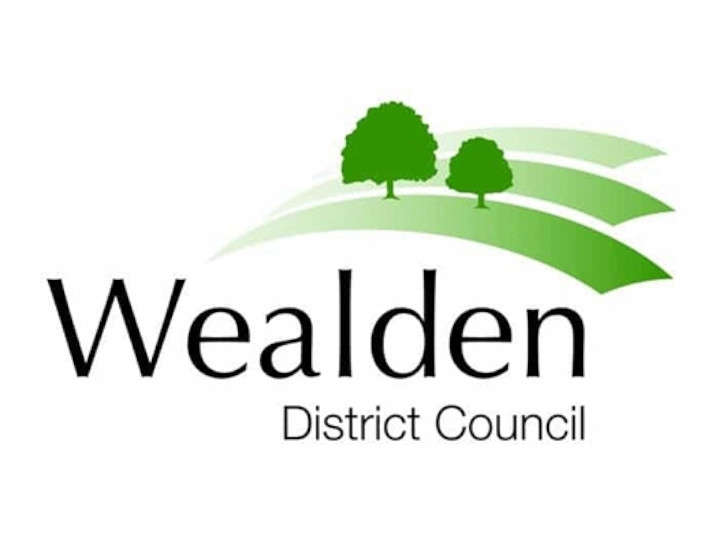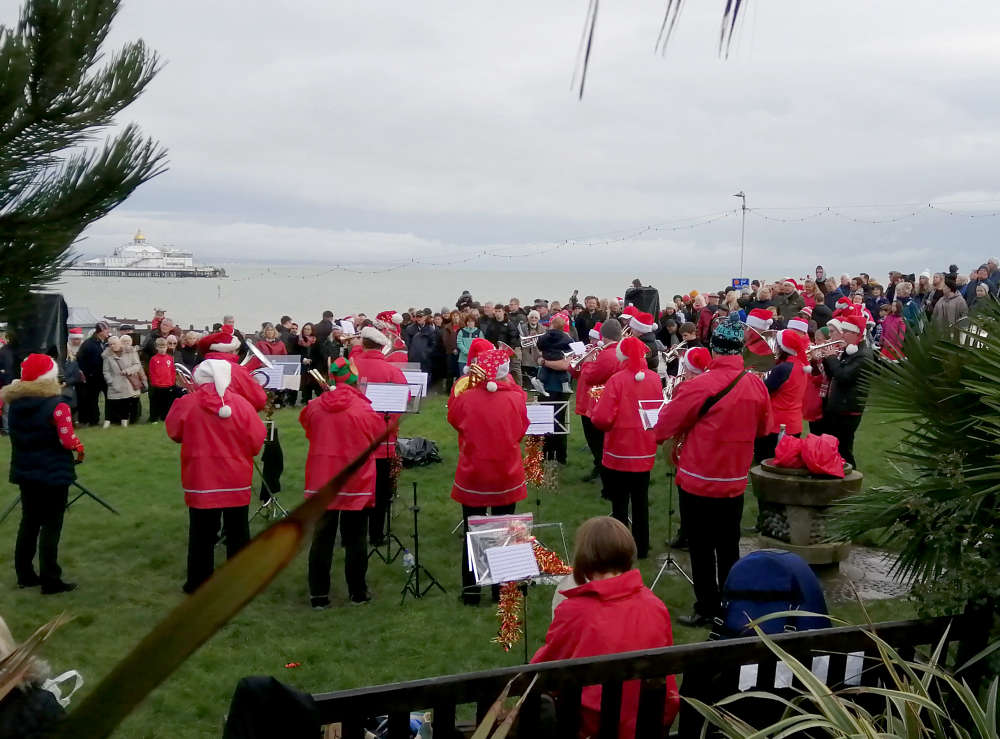
At risk woodlands in Sussex will flourish thanks to a £1.9 million pioneering project being led by the Woodland Trust.
The “Lost Woods of Low Weald and Downs” project aims to breathe new life into badly fragmented and degraded woodland across 314km2 of Sussex in a unique way – by reconnecting people to their local environment.
Over the last two years, during the project’s development phase Lost Woods - which is supported by the National Lottery Heritage Fund and in partnership with Sussex Wildlife Trust, Action in rural Sussex and Small Woods Association - has been reaching out to young people, communities and landowners to engage and inspire them to protect these vital natural habitats. The aim is to create a new generation of woodland champions.
With the Trust’s recent State of Woods and Trees report showing that just 7 per cent of UK woodlands are in good condition, the project takes on even more significance.
Jenny Scholfield, Woodland Trust Regional Director said in the Low Wealds nearly 60 per cent of woods are not currently managed and absent of the wildlife you would expect to be abundant in wild places.
She said:
“For centuries, woodland was an everyday part of people’s lives, for industry and for recreation and whilst we have beautiful woods and trees in Sussex, today many woodlands have become fragmented and neglected.
“Fragmented small woodlands are less resilient to impacts of the changing climate and other adverse factors, resulting in vulnerable wildlife habitats for local populations of wildlife species. We need to act now to make woodlands more secure for wildlife and connect small woodlands into a bigger, wilder landscape.
“As a partnership of organisations committed to nature conservation, we can do what we can to change this but also need the support of communities. Thanks to National Lottery players, this project aims to reconnect people to the many benefits of woodland – providing opportunities to develop skills, confidence and knowledge to enjoy and care for the woods – and ultimately help woods be more resilient so that they are no longer lost woods but loved woods.”
So far, the project has reached out to the likes of young carers to boost their mental health - after so much time isolated indoors during covid, they have welcomed the solace of visiting woodlands.
The project also works across the Low Weald and Downs – training the likes of woodland owners, managers and contractors to revive and restore woods - introducing ways of managing woodlands, restoring biodiversity, expanding woodland habitat and forging greater connectivity of woodlands across the landscape.
Stuart McLeod, Director England - London & South at The National Lottery Heritage Fund, said: “At the Heritage Fund, we’re incredibly proud to be playing a role in ensuring our natural heritage is safeguarded for generations to come, but also that the projects we fund give people the chance to connect with the nature and wildlife that is on their doorsteps.”
Ian Baker, Small Woods Association CEO, said:
“We are delighted to be part of the Lost Woods partnership and are keen to get started with the task of engaging communities with their woodlands and helping woodland owners and managers to address the wide range of challenges they face.”
Henri Brocklebank, Director of Conservation of the Sussex Wildlife Trust said:
“The project’s focus on networks for nature and networks for people will bring new audiences to loving these special places in Sussex. Our woodlands will be richer in wildlife and performing such an important task for us all; absorbing carbon, slowing the flow of water, providing places of tranquillity and inspiration, and of course hosting exquisite and fascinating plants and creatures.”
Karen Laver from Action in Rural Sussex (AirS) said:
“Our work engaging communities in the development of this project has shown how much the benefits to woodlands, of greater understanding and care from local people, is linked to the benefits for people from engaging in woodland activities. The great news is that this funding will enable our partnership to bring these activities to a wide range of people for whom many services are often difficult to access.”
The Lost Woods project will enhance access to lost woods through the likes of events and volunteering and will create a “woodland culture” in the area by providing education, skills and knowledge building opportunities to priority audiences and delivery of a programme of formal training and support for owners, managers and contractor. Ultimately it is about creating a resource of skilled individuals and future woodland champions.
The Lost Woods area stretches from Pulborough in West Sussex to the fringes of Lewes in East Sussex, is dominated by agriculture and the remaining woods are often small and in poor condition due to a range of issues including tree disease, invasive species and management that doesn’t prioritise the ecological benefits of trees and woods.
Tree cover in the Low Weald area is just 14 per cent, compared to 22.8 per cent in the South Downs and 24.8 per cent in the High Weald area to the North. Many are full of invasive rhododendron and the rotations in traditional coppice woods which bring abundant biodiversity have lapsed for decades.
Get involved in the project facebook.com/lostwoodssussex

 Recycle your Christmas tree for St Wilfrid's Hospice
Recycle your Christmas tree for St Wilfrid's Hospice
 Pupils from Shinewater School entertain the residents of Mortain Place Eastbourne
Pupils from Shinewater School entertain the residents of Mortain Place Eastbourne
 Merry Christmas to residents from Wealden District Council
Merry Christmas to residents from Wealden District Council
 Eastbourne’s annual Christmas Day Concert to go ahead
Eastbourne’s annual Christmas Day Concert to go ahead
 Ashdown Radio Sport
Ashdown Radio Sport
 Man convicted of Bexhill murder
Man convicted of Bexhill murder
 Former Sussex student jailed for raping and sexually assaulting women
Former Sussex student jailed for raping and sexually assaulting women
 Eastbourne Theatres nominated for prestigious stage award
Eastbourne Theatres nominated for prestigious stage award



